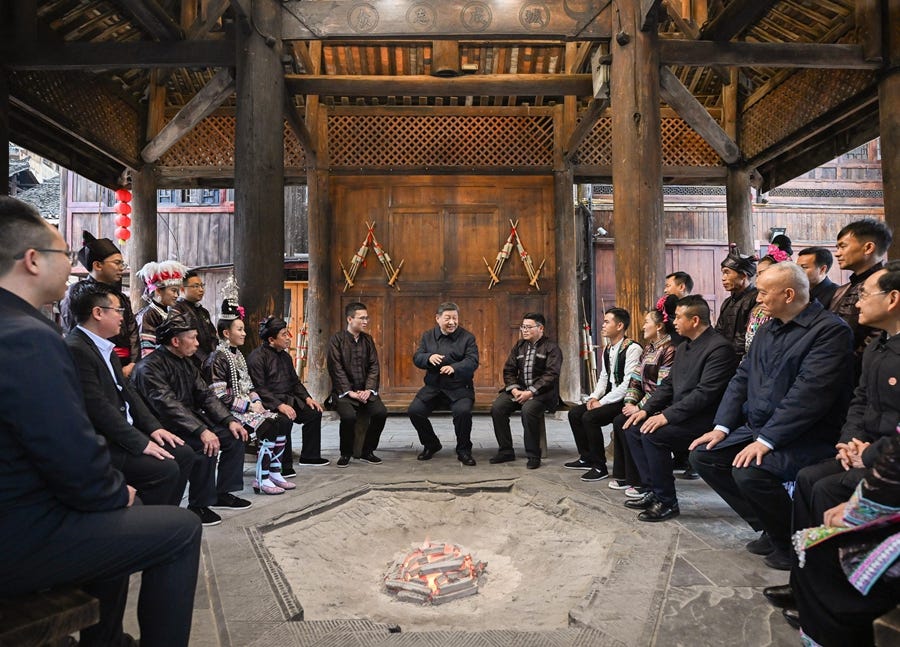Lawfare from China
Laws to target foreign companies, China enjoys the U.S retreat from the world, mixed economic messages, and more.

This is The China Week, a succinct roundup of what happened in the world’s other superpower in the last seven days.
The main story this week is about China’s new legal tools to punish foreign (which mostly means American) organizations that enact sanctions or other punitive economic measures on Chinese government organizations and companies. But our second story today is also really noteworthy: traditional allies of the U.S. are lining up to meet Xi Jinping and other senior Chinese leaders, in search of stability as the Trump and Musk government nuke the post-World War II order.
The China Week is free for the next few weeks—subscribe here if this was forwarded to you, or give a subscription as a gift.
These are some other things I’ve worked on recently:
At ChinaFile: ‘Survival Comes First’: A translation of an interview with an anonymous Gen Z “content moderator” for a major C…


